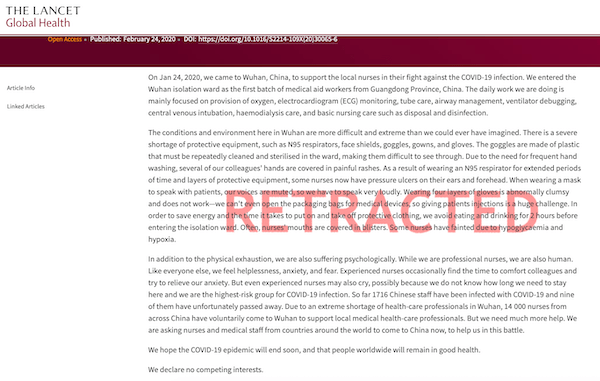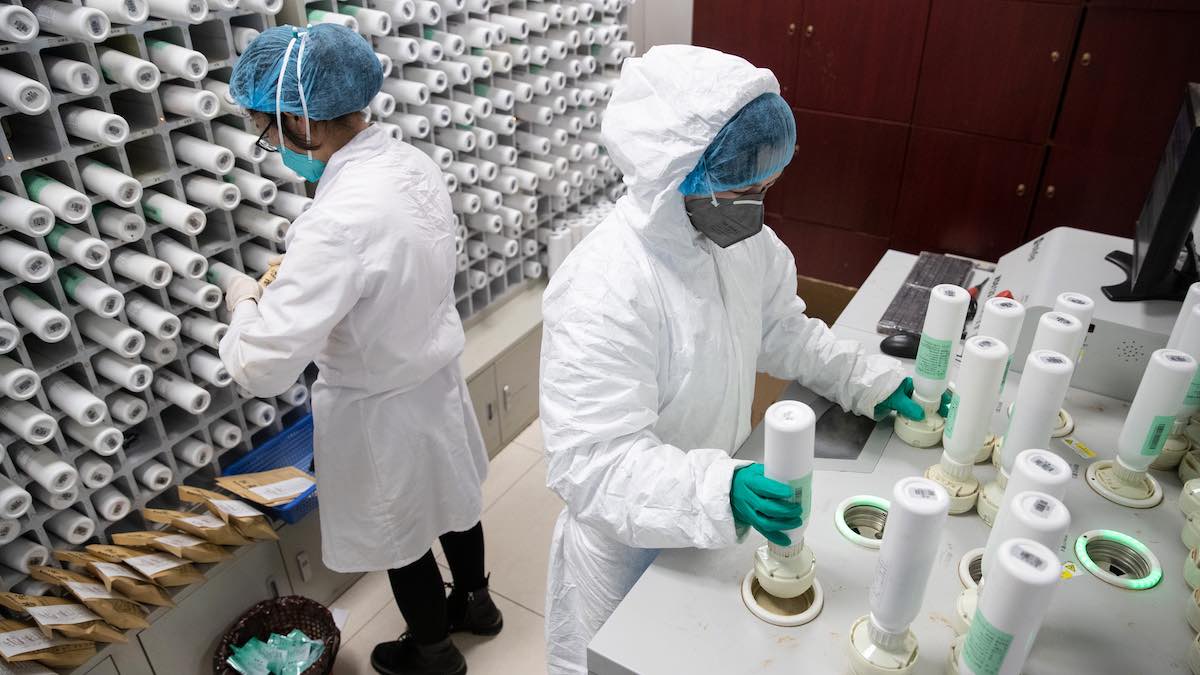Like the DNA running through the virus of the Covid-19 epidemic, fact and fiction have become fused.
From January through to the middle of February, the epicenter of the disease was rooted in China before it quickly spread to more than 80 nations across the world.
Even now, 91% of the nearly 94,000 people infected and all but 222 of the 3,200 deaths have been reported in the world’s second-largest economy.
Yet as the outbreak enters a third month, Beijing’s main weapon has been to lock down vast swaths of the country.
“Last Tuesday, a senior World Health Organization official finishing a mission in China told reporters that other countries could learn from China’s ‘rigorous approach’ . [but] no other nation can or should seek to replicate China’s actions,” Thomas J. Bollyky, the director of the Global Health Program at the Council on Foreign Relations, and Vin Gupta, of the University of Washington Medical Center, said earlier this week.
“The disregard that the [Chinese] government now demonstrates for the civil liberties and rights of its citizens is inseparable from the policies and actions that contributed to the outbreak in the first place,” they wrote in a commentary for Foreign Affairs, which is published by the Council on Foreign Relations, a New York-based think tank.
“These behaviors include the government’s refusal to share information about the human-to-human transmission of this virus in a timely manner, its punishment and censorship of doctors and other whistleblowers who sought to raise alarm over the novel coronavirus, and its slowness in sharing the basic public health information that might have helped thousands of Chinese people avoid infection,” Bollyky and Gupta added.
Politically, this has been a public relations nightmare for President Xi Jinping and the ruling Communist Party. Accusations of incompetence have been leveled against Beijing for its early response to the crisis, as well as claims of a “cover-up” by officials in Wuhan.
Since Covid-19 first emerged in December, the capital of Hubei province has been in quarantine. But now a parallel narrative about the origin of the outbreak has been put forward by an unexpected source.
“There is some question whether Wuhan was the primary originating source of the Covid-2019 virus since the Patient Zero of Italy, as well as a Japanese case, did not have any direct or indirect connection with China but they shared a common history of having vacationed in Hawaii,” Lawrence Lau, the professor of economics at the Chinese University of Hong Kong, said on China-US Focus, an open-platform for academic debate.
“A recently identified Northern Californian case also did not have any connection with China. So it is possible that the primary originating source of the virus is from elsewhere. Further testing and re-testing of US influenza cases that occurred over the past six months, especially those that resulted in fatalities, may throw some light on this question,” he wrote in a commentary.
For the record, officials in Hawaii stressed “that there had yet to be” a single “confirmed case on the islands.”
The Lancet, a weekly peer-reviewed general medical journal in the United Kingdom, has also been dragged into a separate controversy.
First published in 1823, it ran a letter on February 24 from Yingchun Zeng, of the Third Affiliated Hospital of Guangzhou Medical Center, and Yan Zhen, of traditional Chinese medicine at Sun Yet-sen Memorial Hospital in Guangzhou.
“On January 24, we came to Wuhan [and] the conditions and environment here are more difficult and extreme than we could ever have imagined. There is a severe shortage of protective equipment, such as N95 respirators, face shields, goggles, gowns and gloves,” they said in a request for international medical assistance.

The mysterious letter in The Lancet last month. Photo: Courtesy of The Lancet
Two days later, the word retracted in red capitals was stamped across the letter on The Lancet’s website.
“On February 26, we were informed by the authors of this correspondence that the account described therein was not a first-hand account, as the authors had claimed, and that they wished to withdraw the piece. We have therefore taken the decision to retract this correspondence,” The Lancet stated without going into further details.
Hours earlier, a medical delegation sent to Wuhan posted an online statement saying the two were not part of the team and described their “description of conditions” as inaccurate.
Still, the mystery deepened as it came after Beijing launched a crackdown on negative news and the way it was reported.
“It is well known that Communist China has become a pay-as-you-go health state. Some of the nightmare medical frontline scenes we are seeing should be a reminder that China put ‘public security’ ahead of public health,” Wu’er Kaixi, the exiled Chinese activist known for his leading role in the Tiananmen Square protests in 1989, told Asia Times.
“Sadly, it’s very likely that as the virus transmits beyond its host to other nations, we are likely to discover that this has endangered global health and that we are not prepared for a crisis of this scale. Ironically, we are probably dependent on China for the medical equipment we will need to fight the virus,” he added.
In the meantime, the DNA of the true story appears to have been infected with a foreign body, unlike Covid-19.
























